Are you aware of the fact that there are millions of bacteria residing in your mouth? It is true. There are about 300 different species of bacteria, totaling up to a billion, at any given time, in your mouth. While some of the flora is extremely beneficial, certain are harmless.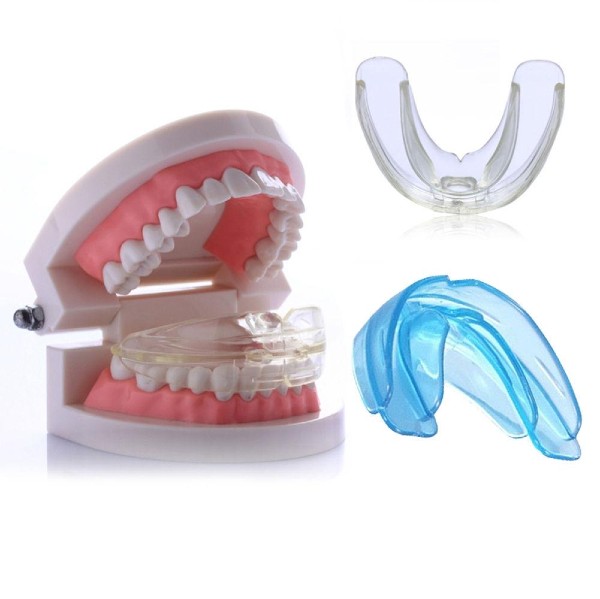
However, there is a third category of these bacteria which are responsible for dental diseases like tooth decay, gingivitis, etc. Though these organisms are microscopic in size, they are leading causes of certain severe oral diseases due to their alarmingly high numbers. This particular group of bacteria grows by feeding on the sugar that is present in the foods we eat. They eat, grow, and dispose waste materials in the form of plaques. These plaques damage the teeth inside out and give rise to severe conditions like periodontal disease.
Whether you are 7 or 70, dental health is an integral part of overall well being. Oral health forms an integral part of overall well-being and healthy body. Oral health covers all aspects of health of the teeth, gums, and the complete oral-facial system that allows and helps us to smile, speak, and chew.
Many people avoid visiting the dentist every year, even though regular check ups play a vital role in preventing the onset of many oral diseases. It is a false notion that you only have to visit a dentist when there is something wrong with your teeth or when you experience pain in your gums. In reality, regular check ups contribute largely to a healthy mouth devoid of diseases.
Many people are unaware that bad oral health is directly linked to several severe disorders like cardiac problems, diabetes, complications in pregnancy, etc. This is why, maintaining good oral health is recommended by every doctor. To prevent tooth decay and damage, having a good oral hygiene is very important. Dentists recommend a rigorous oral care routine for healthy teeth, gums, and mouth. This benefits a person in multiple ways and ultimately keeps one healthy.
Tips for Perfect Oral Health
There are certain rules and guidelines given by several healthcare companies and dentists that can help you figure out the best routine for you. Remember to follow these tips to ensure you have a perfect oral health care routine:
1. Don’t Go to Bed Without Brushing Your Teeth
Don’t rush when you brush. Take your time. Clean your teeth thoroughly but brushing should not be vigorous. Make sure the toothbrush is soft enough to clean everything and not harm the gums in the process. Use slow and short strokes. Some people have the notion that the firmer the toothbrush, the better it is. But it is simply not the truth. As you age, your gums grow weaker. Using a hard bristled toothbrush can injure the gums and cause them to bleed.
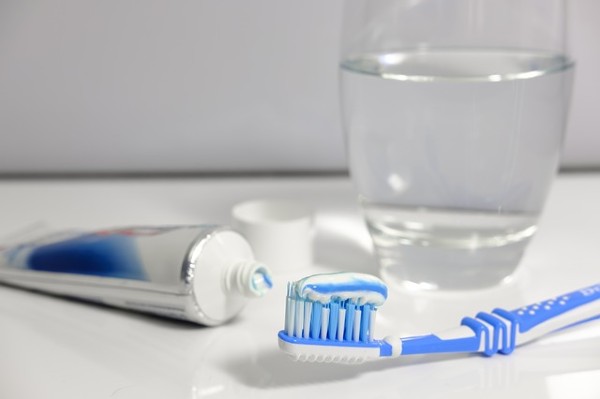
Brushing twice a day is an important step to add to your oral care routine. This is because, the foods that we eat are digested by bacteria and they leave acid residue in the mouth. This acid residue damages the soft tissues of teeth, enamel and gums. Hence, brushing is an important step as it reduces the inflammation and the build up of plaque. Consequently, it prevents bad breath, improves gum health, and prevents discoloration of the teeth.
2. Use Proper and Clean Tools
Use fluoride toothpaste recommended by dentists and a soft bristle brush that can reach groves and crevices of teeth perfectly. You could use a battery operated toothbrush to ensure extra reduction in plaques or residues than manual brushing. Remember to clean your toothbrush with water and keep it upright to air dry it.
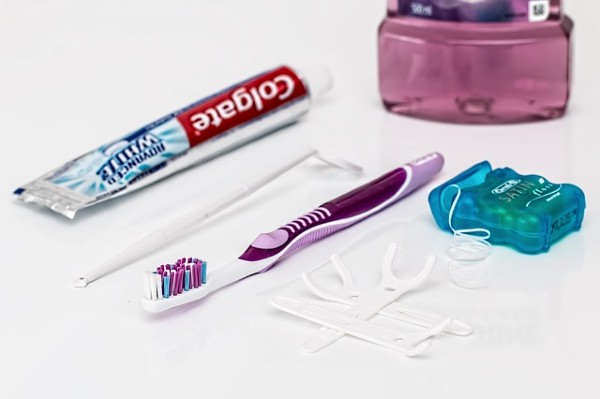
Avoid putting it in the same containers as other brushes and cleaners, to prevent cross contamination. Do not enclose toothbrush in any covers, caps or cases. This could facilitate the growth of bacteria or other disease causing organisms. Using mouthwash containing fluoride is also a good idea.
3. Flossing is a Necessity
Plaques develop when the food remains stuck in the teeth with no scope of removing it through brushing or when saliva and fluoride have no access to it. This more often than not results in tooth decay and gum disease. So, according to the American Dental Association (ADA), it is very important to incorporate inter-dental cleaning in routine oral care. Inter-dental cleaners like floss are available to clean the buildup or residue left in between the teeth. This is important because cleaning between the teeth ensures removal of plaques and prevents development of cavities, gum disease, etc.

ADA recommends flossing at least once a day. Dentists believe you are doing only half a job if you brush and don’t floss. However, it is important to use proper technique for flossing. Flossing roughly, can damage teeth and gums, and can make them bleed. Different variations of floss are available in the market for you to chose the one best suited for you.
4. Cleaning Your Tongue is Equally Important
The food we consume leaves debris not only in the teeth and gums, but also on the tongue’s surface, in the cavities. The tongue has several small taste buds and often times the debris left behind get stuck in the crevices of the tongue as well as teeth and gums. The eventual build up leads to the growth of microorganisms and bacteria, and results in bad taste and bad breath. If left untreated for a period of time, it can lead to periodontal diseases.
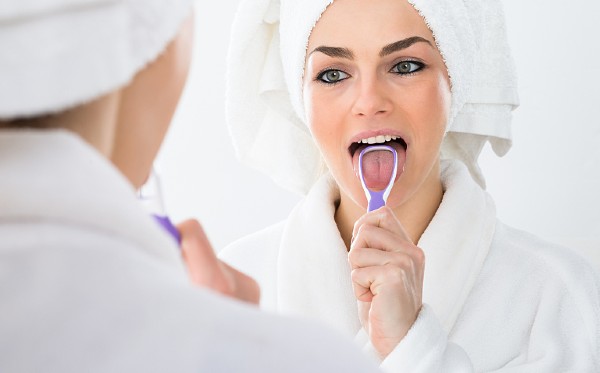
To prevent this, you need to finish your oral routine with cleaning your tongue. You can use your toothbrush, but it will not be as effective as a tongue scraper/cleaner. Dedicated tongue cleaner is more hygienic and efficacious as it will prevent the bacteria from getting trapped like in the bristles of toothbrush. Give your tongue gentle strokes and this will make sure the bacteria and debris are removed. The end result is fresh breath and a clean mouth.
Ridding the tongue of dead cells and bacteria improves your ability to taste.
5. Choose Correct Dental Care Products
With new dental care products coming every now and then, this makes it difficult to choose a perfect product. From toothbrush to mouthwash, inter-dental brushes, to tongue cleaners, you have options for every product. You can consult your dentist to figure out the best suited products for you.
6. Rinsing – The Final Step
Toothbrush and floss are the important tools against the prevention of plaques, gum diseases, tooth decay, etc. However, rinsing offers a more in-depth prevention against these problems. Mouthwashes and mouth-rinses should be an integral part of your oral care set. Mouthwashes, especially the ones containing fluoride, are efficient in removing the debris and food particles that are stuck in the teeth in places the brush cannot reach.

Antiseptic and antibacterial properties of these mouthwashes ensure the elimination of harmful oral bacteria and removal of food particles. This subsequently controls the plaques and tartar build up. Rinsing not only brings about fresh breath but it also cleans the whole mouth.
Following the dos can be a little easy sometimes. However, the real challenge is following the don’ts. Getting rid of habits doesn’t seem easy and achievable at first, but it is possible. And it is important to get rid of those habits if they interfere with your life when the ultimate goal is being healthy and devoid of diseases.
Here are a few don’ts you need to pay attention to, to improve your oral hygiene.
1. Smoking- A Big No!
Smoking causes several dental problems including but not limited to yellow teeth, bad breath, increased deposition of plaques, inflammation of salivary glands, etc. It is also one of the leading causes of oral and throat cancer. It delays the healing process and creates complications after procedures like tooth extraction, periodontal surgery, or oral surgery.
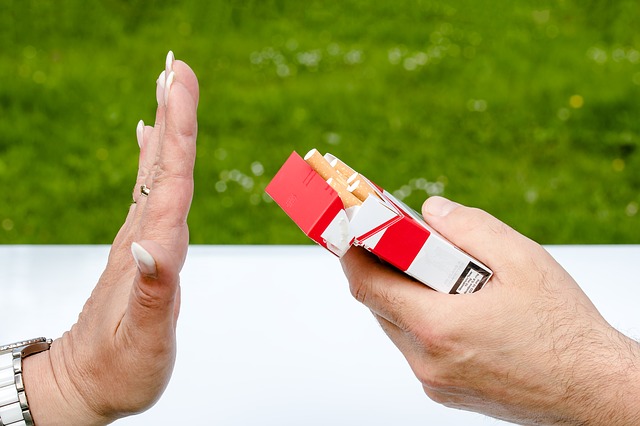
Smoking also affects the sense of taste and smell. Moreover, the tar from the cigarette stains the teeth, discolors the tongue and is also responsible for bad breath. Excess smoking results in tooth decay and gum disease, ultimately. Centers for Disease Control and Prevention (CDC) has reported that smokers have twice the chance of developing gum disease when compared to non-smokers.
Whenever you smoke, the harmful substances from tobacco smoke pass through your mouth, oral cavity and eventually reach your lungs. The constant exposure to this smoke damages the inner linings of mouth, throat, and lungs, thereby causing oral cancer. It also leads to necrosis of the gum tissue which smells and tastes bad. However, people who stop smoking eventually are at a decreased risk of developing gum disease.
2. Avoid Eating Ice Cubes
Drinking ice tea or iced soda often ends in us crunching the left over ice cubicles. Fun, right? No. You may not know this but it is the most common way to damage teeth. These ice cubes form microscopic cracks in the teeth leading to tooth fracture later in life. Crushed ice may be better than ice cubes but dentists still vote against it.
It should be avoided because chewing on ice can chip tooth enamel and expose teeth. This results in increased sensitivity and since it lowers the mouth temperature, it makes teeth more susceptible to damage and cracks. Ice not only affects the teeth but it also harms the gums. The sharp edges may somehow injure gums and cause them to bleed. This bleeding could damage gums, leading to gum recession and can be a start point to development of a gamut of gum diseases.
3. Be a Responsible Foodie
Diet influences the health of your teeth and gums. The foods chosen and how often they are consumed, affects general health as well as dental health immensely. Eating too many sugary sweets or sugary drinks puts you at a risk of tooth decay. Tooth decay occurs when the plaques come in contact with sugars in the mouth. This results in acid attacking the teeth. Tooth decay is the most common dental disorder in childhood but, good news is, it is completely curable. Avoiding excess sugar intake is the best solution.
Acidic foods can weaken teeth. Excess intake of oranges, lemons, limes, etc. can wear your teeth down. Prolonged intake has an adverse effect on the enamel as it weakens the enamel. Eating foods that have low nutritional value can lead to gum disorders. This is due to weakness of the tissues that is caused by nutritional deficiency and hence, they are not strong enough to fight off infections of the mouth, thereby affecting gums. It is usually more severe in people with poor nutrition and bad eating habits.
In order to keep the mouth clean and healthy, good oral hygiene should be practiced daily. Brushing, flossing and rinsing are the real ABC’s of dental hygiene. However, they are alone not enough for a healthy mouth and a great smile. Brushing after meals, using mouthwash, flossing at least once a day, using inter-dental brushes, etc. are the best ways to inhibit the growth of disease causing bacteria and preventing tooth decay.
Brushing your teeth twice is advised but brushing them for a short amount of time may not be helpful. Dentists recommend brushing the teeth for 2 minutes straight. You could make it a routine by putting on a song, setting up a timer, or watching a video to ensure you are taking 2 minutes for it. Using appropriate toothbrush and floss also makes sure that proper attention is being given to your mouth. Incorporating proper techniques helps make sure there is no food or any other substance stuck in the teeth that could facilitate the growth of bacteria.
Using mouthwash and rinsing are important but they should not replace the equally essential steps of brushing, flossing, and visiting a dentist biannually. Maintaining a daily routine can help you keep your mouth healthy, your breath fresh, your teeth white, and your smile wide.